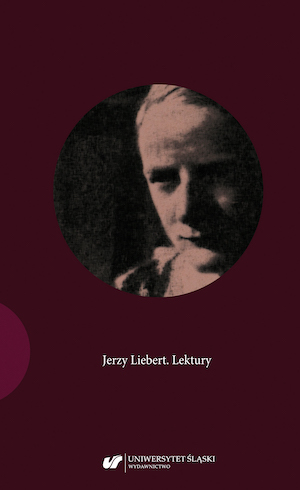Wiersze ostatnie. Gorzkie wióry Jerzego Lieberta
The last poems. Jerzy Liebert’s Gorzkie wióry
Author(s): Ryszard Knapek
Subject(s): Language and Literature Studies
Published by: Wydawnictwo Uniwersytetu Śląskiego
Keywords: Jerzy Liebert; reading; Lyric; religiosity;demons;
Summary/Abstract: The article begins with an optimistic thesis which stands that the Jerzy Liebert’s poetry is a proper material for a coherent literary history narration. It changes over the time, it has evident periods and it’s turning points are likely to recognise and describe. The only issue that stays underspecified is the end. In addition to the series of poems which concern on a tuberculosis and aproaching death of the poet, there are three more texts which can be read as „the last poems”. These are: Lisy [Foxes], Veni Sancte Spiritus and Gorzkie wióry [Bitter woodchips]. These texts are put under an interpretation in the article. The interpretation frequently turns back to earlier Liebert’s poems, and so it draws an overview of the whole Liebert’s work. Lisy evoke the most important oppositions, which constitute earlier Liebert’s poems. Instead of remaining on the level of a simple dualism, it turns to the unsettled and hurtful synthesis of the corporeal and the spiritual. Veni Sancte Spiritus is a different ending, or rather “the capstone” of the Liebert’s work, concerned on its religious and experiencable aspects. It returns to metaphysical attempts, which were undertaken in poems written between 1925 and 1927. Starting from that, author reconstructs a project of a poetry which make “a sphere of between” for a man meeting with the God or another man. The closing of Liebert’s work presented in Gorzkie wióry has a distinctive role in the interpretation. The poem tells a story of a disappointment, which come from a fail of the poetical project. In the finishing point of his work, Liebert understands that any attempts of projecting poetry or relationship (with God or another man) are sentenced for a failure. It doesn’t mean negation of the whole work, only the idea of project. Meanwhile more important become that, what happens regardless of the will or the purpose of the attends. To explain that, author of the article ask about the role of “the waste” – the woodchips – and a category of an experience in Liebert’s work.
Book: Jerzy Liebert. Lektury
- Page Range: 177-194
- Page Count: 18
- Publication Year: 2020
- Language: Polish
- Content File-PDF

